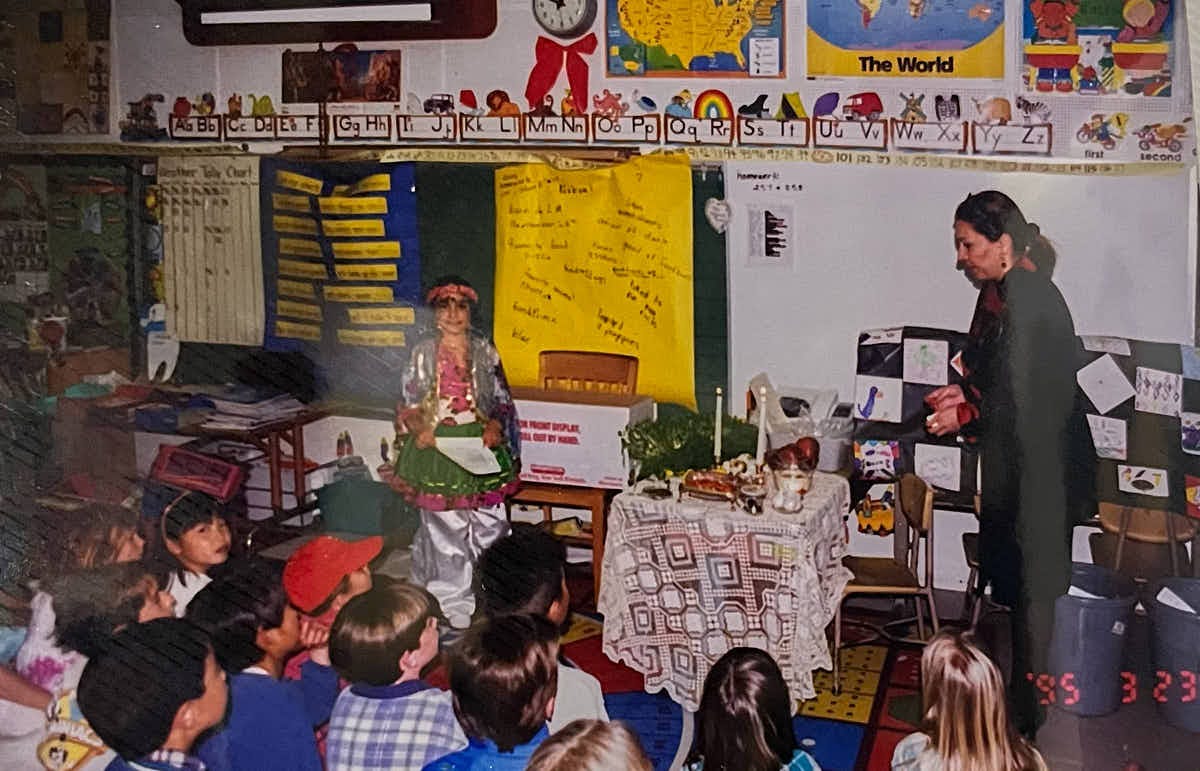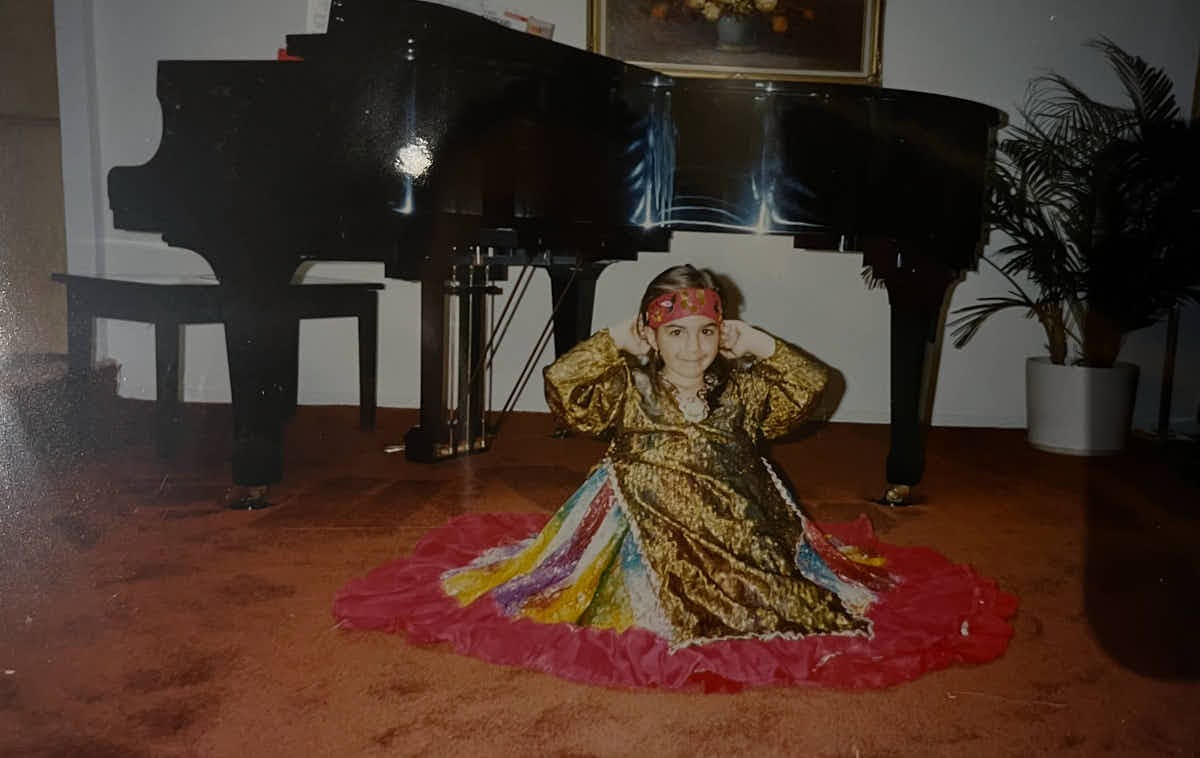A story on shame and embracing my Persian roots.
How the traditions I once hid became the heritage I proudly share.
Growing up, there were certain moments that, as a child, felt like the ultimate test of survival: picture day, PE class, and for me, the annual Nowruz presentation in elementary school. Every spring, my mom would arrive at my elementary school classroom, armed with a haft-seen spread, a plate of sabzi, and an eagerness to share the traditions of the Persian New Year.
For my classmates, perhaps it was a fascinating glimpse into a different culture. For me, it was a way to highlight that I wasn’t like them. I was different. And as a kid, that’s the last thing I wanted.
There was also a secondary self-shame around my culture because of the push I felt at home for us to assimilate. Why was my mom coming in to share about this culture I was supposed to be leaving behind? This mixed message always confused me and left me uncertain where I should lie on the spectrum of shame to pride.
While my mom, with her radiant smile and perfectly accented English, explained the symbolism of each item on the haft-seen table, all I could think about was how different we were. I knew why we couldn't just celebrate Easter like everyone else... we’re Jewish... isn’t that different enough? And of course, there were whispers, curious glances, and the inevitable questions. They all felt like spotlights on my perceived otherness
I just wanted to blend in, to be like all the other American kids whose moms didn't bring strange green sprouts and goldfish to school.
Fast forward three decades, and the irony isn't lost on me. The very culture I once wished to hide is now something I champion with immense pride. What was once a source of deep embarrassment has transformed into a wellspring of identity and connection. Today, I don't just passively observe Nowruz; I actively share its beauty and meaning through my blog, proportionalplate.com. There, I delve into the rich tapestry of Persian cuisine and culture, inviting others to explore the flavors and stories that define my heritage.
So, what changed? How did a shy, embarrassed child evolve into someone who eagerly shares their cultural background with a global audience?
Part of it, I believe, is simply maturity. As we grow, we begin to understand that our unique qualities are not weaknesses but strengths. The "otherness" I felt as a child slowly morphed into a distinctiveness I came to appreciate. I started to see the beauty in the intricate patterns of a Persian rug, hear the poetry in the Farsi language, and taste the regional richness in every bite of food.
Food is an incredible way for anyone to connect to a culture, so sharing my recipes these days is my way of creating a powerful bridge for others to be able to experience pieces of my ancestry.
Another significant shift came with the realization that my culture as an Iranian Jew is even more unique. As an adult, I connected to the vibrant (and messy) history, rich artistic tradition, and a deep sense of community with anyone even remotely related to the experiences of my ancestors. The stories my mom told in that classroom, which once felt like embarrassing tales, became threads weaving me into a larger, more beautiful narrative.
Last month, I was rummaging through bins of photos looking for examples of my family celebrating our heritage from my childhood for an Allrecipes article about me and my recipe for Tahdig. I came across the many photos of the annual elementary school presentations and felt something different for the first time. I felt proud of how my mom went out of her way to share our culture in classrooms where I was the only Iranian kid. In that moment, I knew something big had changed, and that I needed to include one of those images in the article.
The journey from childhood embarrassment to adult pride wasn't a sudden leap but a gradual unfolding. The process of embracing my roots helped me lean into the uniqueness of who I am. For those of you who have been following along for a while, you know that I eagerly prepare my own haft-seen, regularly prepare all the traditional foods for myself and friends, and look forward to sharing pieces of my culture not just with my family, but with anyone curious enough to listen, to learn, and perhaps, to taste.







Beautiful writing, thank you for sharing ❤️